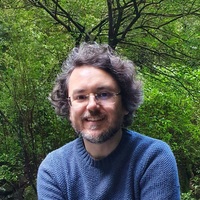Papers by Brigitte Falkenburg

History, philosophy and theory of the life sciences, Dec 12, 2023
Despite the scientific revolutions of the twentieth century, mechanistic explanations show a stri... more Despite the scientific revolutions of the twentieth century, mechanistic explanations show a striking methodological continuity from early modern science to current scientific practice. They are rooted in the traditional method of analysis and synthesis, which was the background of Galileo's resolutive-compositive method and Newton's method of deduction from the phenomena. In early modern science as well as in current scientific practice, analysis aims at tracking back from the phenomena to the principles, i.e., from wholes to parts, and from effects to causes. Vice versa, synthesis aims at explaining the phenomena from the parts and their interactions. Today, mechanistic explanations are atomistic in a generalized sense. They have in common to explain higher-level phenomena in terms of lowerlevel components and their causal actions or activities. In quantum physics, the lower-level components are subatomic particles, and the causes are their quantum interactions. After the quantum revolution, the approach continues to work in terms of the sum rules which hold for conserved properties of the parts and the whole. My paper focuses on the successes and limitations of this approach, with a side glance at the recent generalization of mechanistic explanations in cognitive neuroscience.
Noûs, Sep 1, 1991
Page 1. PHILOSOPHICAL FOUNDATIONS OF QUANTUM FIELD THEORY EDITED BY HARVEY R. BROWN AND ROM HARRE... more Page 1. PHILOSOPHICAL FOUNDATIONS OF QUANTUM FIELD THEORY EDITED BY HARVEY R. BROWN AND ROM HARRE Page 2. Philosophical Foundations of Quantum Field Theory EDITED BY Harvey R. Brown AND Rom Harre CLARENDON PRESS OXFORD ...
Zeitschrift Für Physik C Particles And Fields, Jun 1, 1991
Brill | mentis eBooks, Jun 15, 2021
European studies in philosophy of science, 2020
Springer eBooks, 2015
The physics of condensed matter, in contrast to quantum physics or cosmology, is not traditionall... more The physics of condensed matter, in contrast to quantum physics or cosmology, is not traditionally associated with deep philosophical questions. However, as science - largely thanks to more powerful computers - becomes capable of analysing and modelling ever more complex many-body systems, basic questions of philosophical relevance arise. Questions about the emergence of structure, the nature of cooperative behaviour, the implications of the second law, the quantum-classical transition and many other issues. This book is a collection of essays by leading physicists and philosophers. Each investigates one or more of these issues, making use of examples from modern condensed matter research. Physicists and philosophers alike will find surprising and stimulating ideas in these pages
The article investigates the way in which Peter Mittelstaedt has been con- tributing to the philo... more The article investigates the way in which Peter Mittelstaedt has been con- tributing to the philosophy of physics for half a century. It is shown that he pursues a path between rationalism and empiricism in the sense of Erhard Scheibe's philosophy of the physicists. Starting from Kant's a priori he gives a rational reconstruction of the conceptual revolutions of 20th century physics. The central topic of his philosophy of physics is the quest for semantic self-consistency, which for quantum mechanics is a hard nut to crack.
V. Klostermann eBooks, 2000
Philosophia Verlag GmbH eBooks, May 25, 2016
Was ist Natur oder was könnte sie sein? Diese und weitere Fragen sind grundlegend für Naturdenken... more Was ist Natur oder was könnte sie sein? Diese und weitere Fragen sind grundlegend für Naturdenken und -handeln. Das Lehr- und Studienbuch bietet eine historisch-systematische und zugleich praxisbezogene Einführung in die Naturphilosophie mit ihren wichtigsten Begriffen. Es nimmt den pluralen Charakter der Wahrnehmung von Natur in den philosophischen Blick und ist auch zum Selbststudium bestens geeignet

Physik Journal, 1993
Bedeutungen eines fundamentalen physikalischen Konzepts "Wenn man die Erkenntnisse der heutigen T... more Bedeutungen eines fundamentalen physikalischen Konzepts "Wenn man die Erkenntnisse der heutigen Teilchenphysik mit irgendeiner friiheren Philosophic vergleichen will, so konnte es nur die Philosophic Platos sein; denn die Teilchen der heutigen Physik sind Darstellungen von Symmetriegruppen, so lehrt es die Quantentheorie, und sie gleichen insofern den Korpern der platonischen Lehre" [1]-so schrieb Heisenberg 1975. Das heutige Standardmodell der Elementarteilchen, dem er sehr kritisch gegeniiberstand, hatte damals schon schlagende Erfolge: das punktformige Streuverhalten von Nukleonen bei tief-inelastischer Elektronenstreuung (1968); der Nachweis der neutralen schwachen Strome (1973); und die Entdeckung der Jf\IJ-Resonanz (1974), die auf das "charm"-Quark hindeutete [2]. Mit diesem Modell ist aber niemand gliicklich, denn es enthalt je nach Zahlung mindestens 18 freie Parameter-Kopplungskonstanten, Massenwerte, Mischungswinkel fiir Quark-Superpositionen. Die gegenwiirtige Suche nach neuen Teilchen, die zur Physik ,Jenseits des Standardmodells" ftihren, und die historische Distanz zu Heisenbergs Kritik am Quark-Modell legen es nahe, erneut danach zu fragen, was ein Teilchen ist. Traditionellerweise verstand man unter Teilchen so etwas wie materielle Substanzen im Kleinen, Die Quantentheorie steckt jedoch gerade im Hinblick auf den Substanzbegriff voller philosophischer Probleme. Meine Sicht des Teilchenkonzepts orientiert sich darum vorrangig an den experimentellen Methoden der Teilchenphysik; und sie fiihrt eher zu Kantischen Einsichten in die Vorliiufigkeit aller Teilchenmodelle als zu Platos Ideenlehre.
Kant im Streit der Fakultäten, 2005
Zeitschrift für Physik C Particles and Fields, 1987
Falkenburg B. Die Form der Materie: zur Metaphysik d. Natur bei Kant u. Hegel. Monographien zur p... more Falkenburg B. Die Form der Materie: zur Metaphysik d. Natur bei Kant u. Hegel. Monographien zur philosophischen Forschung; 238. Frankfurt am Main: Athenäum; 1987
HOPOS: The Journal of the International Society for the History of Philosophy of Science, 2021
Grete (Henry-)Hermann (1901–84) was a German mathematician and philosopher who made impressive co... more Grete (Henry-)Hermann (1901–84) was a German mathematician and philosopher who made impressive contributions to the philosophy of quantum mechanics in the 1930s that have received too little attention. The two volumes reviewed here make her long-neglected work accessible to a wider audience. They not only focus on Hermann’s contributions to the philosophy of quantum mechanics but also embed her work in her unusually broad horizon of interests and expertise, which ranged from mathematics to physics, psychology, ethics, education, and political philosophy.
Vielfältige Physik, 2019
Die Philosophie der Physik behandelt die Struktur, Inhalte und Grenzen der physikalischen Erkennt... more Die Philosophie der Physik behandelt die Struktur, Inhalte und Grenzen der physikalischen Erkenntnis. Im Zentrum steht die Frage: Was lehrt die Physik uber die Welt? Diese Frage hat naturphilosophische, erkenntnistheoretische und wissenschaftstheoretische Aspekte, die im Verlauf der Wandlungen des physikalischen Weltbilds aufkamen und sich bis heute nicht voll erschopft haben. Im Spannungsfeld von Quantenphysik und Kosmologie ist weiterhin offen, ob die physikalische Wirklichkeit vollstandig erkennbar ist und inwieweit eine einheitliche Naturbeschreibung moglich ist. Ausgehend von der Unterscheidung zwischen Naturphilosophie, Erkenntnistheorie und Wissenschaftstheorie skizziere ich den Beitrag der Philosophie zur Klarung dieser Frage – und die Beitrage der Philosophinnen.










Uploads
Papers by Brigitte Falkenburg
https://www.degruyter.com/journal/key/JTPH/2/1/html
Special feature: Newly translated text from Cassirer's Nachlass!
Articles by Massimo Ferrari, Rudolf A. Makkreel, Brigitte Falkenburg, Thomas Mormann, David Stump, Saverio Ricci, Enno Rudolph and Steve Lofts, with a fragment from Cassirer, translated by DJ Hobbs.